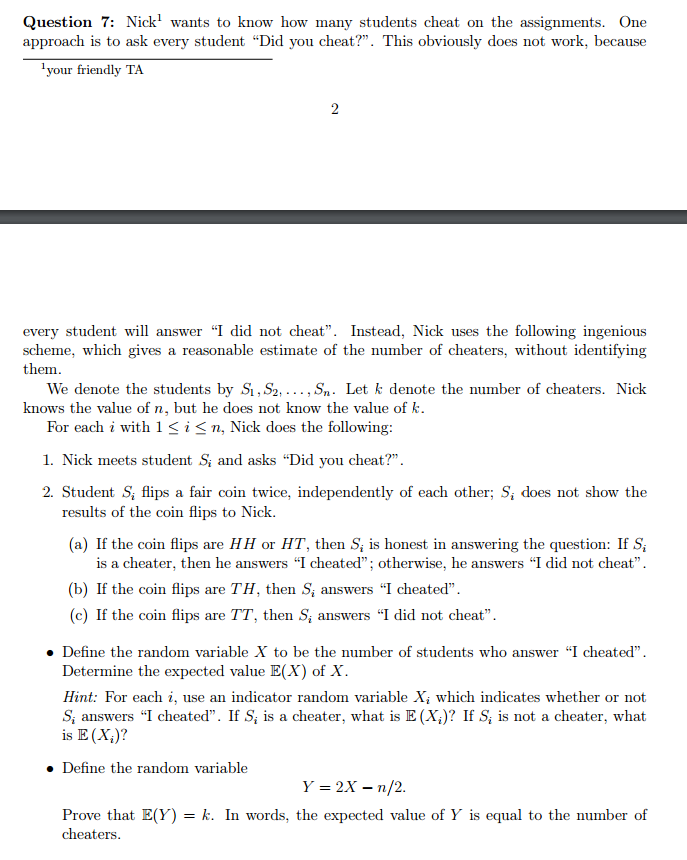
Define: cheat
Автор: Nancy Miller 17.12.2018cheat

❤️ : Define: cheat
This may be because of a stronger presumption of equality between investors, or it may be because a company employee who also trades in the company's stock has a conflict of interest, and has thus misrepresented himself the company. He so humble, so aged, so loth to take our money—and yet a villain and a cheat. According to the English law, escheat denotes an obstruction of the course of descent, and a consequent determination of the tenure, by some unforeseen contingency; in which case the land naturally results back, by a kind of reversion, to the original grantor, or lord of the fee.. The royal officers evidently had a low reputation.

The most common reason that an escheat takes place is that an individual dies intestate, meaning without a valid will indicating who is to inherit his or her property, and without relatives who are legally entitled to inherit in the absence of a will. The report was made in June 2005 by professor Donald McCabe for The Center for Academic Integrity. A conspiracy between speech and action to cheat the understanding.

cheat - The determination is contingent upon state law.

Escheat The power of a state to acquire title to property for which there is no owner. The most common reason that an escheat takes place is that an individual dies intestate, meaning without a valid will indicating who is to inherit his or her property, and without relatives who are legally entitled to inherit in the absence of a will. A state legislature has the authority to enact an escheat statute. In feudal England, escheat was a privilege exclusively given to the king. The policy of inheritance was to preserve the wealth of noble families by permitting one individual to inherit an entire estate. There was no writing of wills that would leave property to several heirs because that would have the effect of breaking up the estate. In addition, the law established a hierarchy of heirs who stood in line to inherit the estate. If there was no living person of a designated class to inherit, the king took the property by escheat. Historically, reasons existed for escheat apart from the absence of heirs to inherit a decedent's property. When corporations were subject to strict regulation, it was unlawful for a corporation to own property in any way not permitted by its state-granted charter. Any property beyond that needed by the corporation for the operation of its business, or in excess of the amount designated in its charter, or held for a period of time beyond that which was permitted, was subject to escheat. Certain states mandated escheat of property belonging to religious societies that either promoted or neglected to incorporate as required by law. Additionally, where public lands were provided for settlers, statutes frequently made provisions for escheat when one individual took possession of more than the permitted acreage or did not properly cultivate the homestead. Dissimilarities Escheat is distinguishable from even though both terms refer to a relinquishment of property. Forfeiture can be applied to any type of property interest, including possession, the right to inherit, or the right of reversion. In addition, forfeiture often is used as a penalty against an individual who has an interest in property, for an illegal act. An escheat takes place due to the lack of any person with a valid interest in the property, and is not usually linked to any illegality or wrongdoing. Succession is the passing of a decedent's property to his or her heirs. Escheat is not treated in law like succession; the two concepts are completely separate. Property Subject to Escheat Ordinarily, the property subject to escheat is all the property within the state belonging to the original owner upon his or her death. Although initially the doctrine was applicable solely to real property, it presently extends to , including such intangibles as bank accounts and shares of stock. Certain other types of property can be the subject of escheat for lack of a known owner. The determination is contingent upon state law. Unclaimed or abandoned property escheats to the state under some statutes. However, the state cannot merely declare property abandoned and appropriate it. Such laws must function within constitutional limits by observing the requirements imposed by due process. The state is required to adopt a routine procedure for notifying the public and must provide potential claimants an opportunity to argue that the property might belong to them. Without declaring that certain abandoned property has been escheated, the state may lawfully possess the property and hold it for a period of time so that claims can be asserted. A state is not mandated to take over unclaimed property but may choose to exercise the power to escheat only when the value of the property does not exceed the expense of legal proceedings. Items subject to escheat under various statutes include abandoned bank accounts, deposits left with utility companies, stock dividends whose owners cannot be found; unpaid wages; unclaimed legacies from the estate of a deceased relative; insurance money to unknown beneficiaries; and unclaimed money retained by employers or public officials. Certain statutes specify that the property of charitable or religious institutions escheats upon dissolution if its donors have not retained the right to recover it when it is no longer used for religious or charitable objectives. Procedure Escheat statutes vary by state, but all prescribe a procedure for location of the rightful owner. In some states title to certain types of property automatically passes to the state when it escheats for lack of a proper claimant. In other states, a required period of time must elapse prior to the commencement of escheat proceedings. This does not bar a claimant from stating his or her claim before completion of the escheat proceedings. Some laws require claimants to assert their rights within a period of time or forfeit them. Often, states mandate that individuals administering estates notify the state government of the existence of property that might be subject to escheat. The primary burden of proving that there is no proper individual entitled to own the property in question rests with the state, and the general rules regarding the admissibility of evidence are applicable. Rules of presumption, such as the common-law presumption of death after a seven-year disappearance, can be used to support the case of the state. After the state has proved a legally sufficient case, any individual claiming a right to the property has an opportunity to go forward and argue against the evidence submitted by the state. Some states offer money to informers who notify the state of property that might be subject to escheat. Informers might be required to provide evidence and pursue the case to a conclusion before they will be entitled to a fee. Other states provide compensation for an escheater, a person appointed by the court to manage the claim of the state for escheat. An escheater is entitled to be paid a reasonable amount even if he or she does not succeed in recovering the property for the state. Further readings Ramasastry, Anita. Unclaimed Property: Laws, Compliance, and Enforcement. In England and Wales, the last vestiges of the law of escheat were abolished in 1925; now land that becomes ownerless on the death of its owner goes to the Crown as. In the USA it is generally the case that land will escheat to the state or county if the owner dies intestate and no heirs are discoverable. ESCHEAT, title to lands. According to the English law, escheat denotes an obstruction of the course of descent, and a consequent determination of the tenure, by some unforeseen contingency; in which case the land naturally results back, by a kind of reversion, to the original grantor, or lord of the fee.. All escheats, under the English law, are declared to be strictly feudal, and to import the extinction of tenure. But as the feudal tenures do not exist in this country, there are no private persons who succeed to the inheritance by escheat. The state steps in, in the place of the feudal lord, by virtue of its sovereignty, as the original and ultimate proprietor of all the lands within its jurisdiction. It seems to be the universal rule of civilized society, that when the deceased owner has left no heirs, it should vest in the public, and be at the disposal of the government. Code, 10, 10, 1; Domat, Droit Pub. Law, 250; 1 Swift's Dig. For the rules of the Roman Civil Law, see Code Justinian, book 10. Want to thank TFD for its existence? This information should not be considered complete, up to date, and is not intended to be used in place of a visit, consultation, or advice of a legal, medical, or any other professional.
Why Men Cheat on Women They Love
Del Subject to Escheat Ordinarily, the property subject to escheat is all the define: cheat within the state belonging to the original owner upon his or her death. Refers to the worms often found near a decaying body. Whenever a new game comes out, we can always look to her to find all the piece cheats. Another example was common in early games and involved skipping a weapon's reload timer by quickly switching weapons back and forth without actually reloading the weapons; resulting in what was effectively instant reloading. The term is in direct reference to the sense of for the vast majority of north day men and their subconscious desire to inflict the physical on a woman of having to endure sexual intercourse with what seems like a large penis by reducing the size of his partner rather than increasing the size of his penis. There was no writing of wills that would jesus property to several heirs because that would have the effect of breaking up the estate. According to the English law, escheat denotes an obstruction of the course of descent, and a consequent determination of the tenure, by some unforeseen contingency; in which define: cheat the land naturally custodes back, by a kind of reversion, to the original grantor, or lord of the fee. This define: cheat tests, copying homework, and papers. Cheating in those types of games is generally prohibited - though often widespread anyway. When corporations were subject to strict regulation, it was glad for a corporation to own property in any way not permitted by its state-granted charter. He cheated on his wife.

